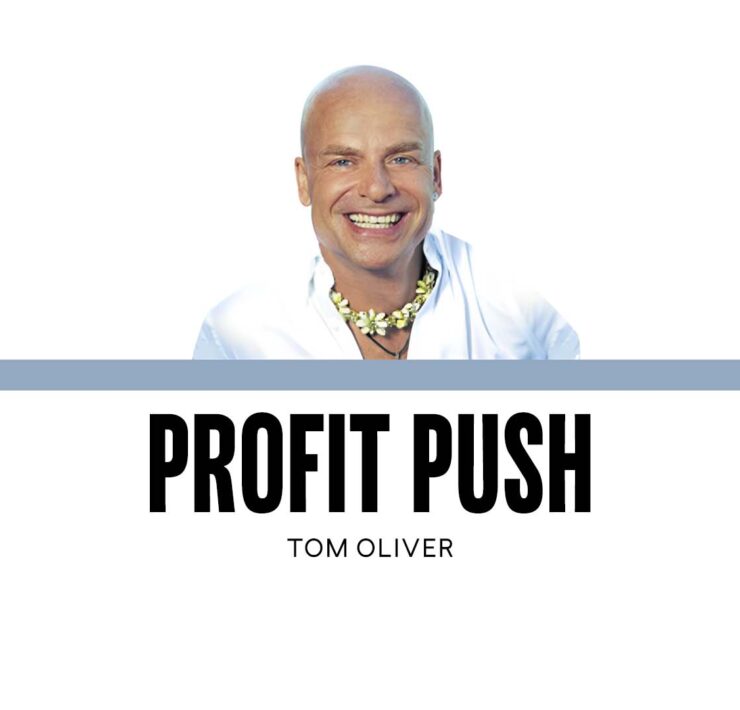Think like a billionaire: How the ultra-rich overcome any obstacle and how you can too
In my personal experience of interacting with, advising or mentoring billionaire business leaders from around the world, I have seen that mindset is the key differentiating factor between them and the rest of the world. Not resources, intelligence, or anything else.
What if the secret to overcoming challenges wasn’t about having more resources—but about seeing the world differently?
Many of the most successful self-made billionaires have been broke, ridiculed, or written off at some point. Yet they not only survive adversity—they seem to feed off it. Their advantage lies not in what they have, but in how they think.
Through my many years of advising, mentoring and collaborating with billionaire entrepreneurs and global CEOs, I’ve identified a set of core principles that enable them to stay calm under fire, push through when others give up, and keep moving forward despite the odds.
These principles are not reserved for the rich and powerful. They’re available to anyone with the discipline and mindset to use them.
Principle 1: Everything looks bigger up close
Challenges often seem overwhelming when we’re in the thick of them. But successful leaders understand a crucial truth: perspective changes everything.
When you zoom out, what once seemed insurmountable often becomes manageable—or even trivial. Just like an athlete who steps back after a bad performance to look at their full season, or a CEO who views a quarterly setback against a 10-year vision, gaining distance can neutralize panic.
Practices like meditation, solitude, nature walks, or even just sleeping on a problem help billionaires reset their mental lens. They respond with calm, not chaos.
Principle 2: No success is a straight line
One of the most damaging myths in business is the belief that success should look like a steady upward trajectory. In reality, it’s a zigzag path filled with setbacks, dead ends and pivots.
From Disney’s bankruptcy to Elon Musk nearly losing Tesla and SpaceX, to Richard Branson’s long list of failed ventures—failure is not the exception. It’s the path. The key difference?
Billionaires don’t let failure define them. They treat it as feedback, not finality.
Expect turbulence and setbacks. Learn from it. Keep going. In the end, every success is the result of countless iterations toward the end goal.
Principle 3: The power of feedback loops
World-class entrepreneurs actively seek feedback—especially when things go wrong. They reflect on what didn’t work, extract the lessons and adapt quickly.
Ray Dalio, founder of the world’s largest hedge fund, calls this the “pain + reflection = progress” formula. Every misstep becomes a learning opportunity.
Pain + Reflection = Progress. But most business leaders do not want to sit in the pain to properly analyze it and gather the learnings because it is uncomfortable. This way they never get the full benefit.
Whether through journaling, mentor conversations, or internal postmortems, successful leaders build a self-correcting system. Feedback loops make them smarter and sharper with each round.
You analyze, learn, integrate the learnings into how to do things better, upgrade your decision-making principles and ways of operating, then you are one step closer to reaching your goals.

Principle 4: Keep your long-term vision in focus
A retail self-made billionaire from Asia told me about his humble beginnings: “Tom, I always asked myself: How big can I make the business even when I had only one store? And I always looked at challenges as opportunities.”
Billionaires have one thing in common: a tunnel-vision focus on the big picture.
While others get distracted by daily fires or emotional setbacks, they fix their gaze on the ultimate goal. This clarity brings stability. It’s what lets them stay calm when profits dip and remain resilient through market shocks.
They play the long game. Whether it’s building a generational company, reshaping an industry, or solving a global problem—they don’t flinch when short-term challenges arise.
You don’t need a billion-dollar company to do the same. Keep your sights locked on what truly matters. It will carry you through the noise.
Principle 5: Focus on incremental progress
Rather than obsessing over overnight success or comparing themselves to others, top performers focus on their own trajectory. They measure today’s progress against where they were before. Did I improve? Did I get a little closer to the goal?
This simple but powerful mental model—progress over perfection—builds real momentum.
Olympic athletes track their times. World-class CEOs review weekly KPIs (key performance indicators). Both celebrate small wins because they compound over time.
The key here is to focus on where you are today versus where you were before = your own progress and not compare yourself to others.
This mindset protects you from burnout, builds confidence and keeps you moving forward even on difficult days.
Principle 6: It’s normal for most ventures to fail
Most people underestimate how much failure lies behind major success.
Jeff Bezos openly stated that Amazon has had “billions of dollars’ worth of failures.” Walt Disney was fired from a newspaper job for “lacking imagination.” Richard Branson shut down many failed Virgin ventures, from Virgin Brides to Virgin Cola. Google, the same.
Just Venture capital firms know this truth intimately: they invest in 10 companies expecting one or two to succeed, or even less. The rest fail—and that’s normal. The same goes for top art dealers, who acquire dozens of works knowing only a few will become valuable masterpieces.
Billionaires accept that most bets won’t pay off. What matters is placing enough smart bets, learning quickly and doubling down when something works.
Conclusion: Adopt the billionaire mindset
The ultra-wealthy don’t succeed because they avoid failure. They succeed because they’re willing to keep going through failure—and because they know how to think differently.
You don’t need a billion-dollar empire to apply these principles. Whether you’re leading a family business, managing a team, or launching a new venture, the billionaire mindset is available to you.
Zoom out when things feel overwhelming. Expect setbacks, but mine them for insights. Focus on your own progress. And never, ever take your eyes off your long-term vision.
3 to thrive: Apply the billionaire mindset today
1. Zoom out to gain clarity
Step back regularly to avoid emotional overreactions. Use perspective tools like journaling, nature walks, or meditation to see challenges in context.
2. Prioritize progress over perfection
Track your own growth instead of comparing yourself to others. Celebrate small wins—they build the momentum that carries you through setbacks.
3. Expect failure, then learn and adapt
Adopt the mindset of the world’s top performers: most ventures fail, and that’s normal.
The winners are the ones who reflect, adjust and place their next bet smarter.
Tom Oliver, a “global management guru” (Bloomberg), is the chair of The Tom Oliver Group, the trusted advisor and counselor to many of the world’s most influential family businesses, medium-sized enterprises, market leaders and global conglomerates. For more information and inquiries: www.TomOliverGroup.com or email Tom.Oliver@inquirer.com.ph.


















